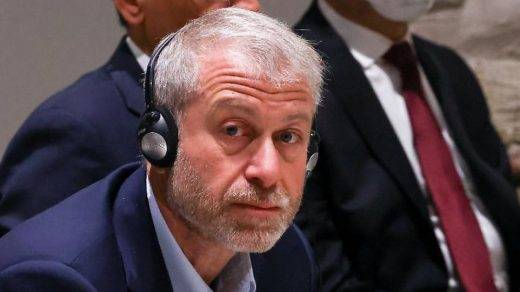In particular, from March 29, groups of six people or members of two households will be allowed to meet on the street.
The second phase of lifting coronavirus restrictions in the UK will begin on Monday in accordance with the government’s timetable for a gradual exit from the national quarantine. The kingdom’s authorities hope that after the partial lifting of the measures, residents will be able to celebrate Easter, celebrated by Anglicans and Catholics on April 4, in a wide circle of relatives.
Since Monday, due to the easing of rules, the British will be allowed to meet on the street in groups of no more than six people or members of no more than two households. According to Prime Minister Boris Johnson, this will allow relatives to see each other more often given the upcoming holidays. In addition, outdoor group sports can resume, tennis courts and golf courses, football and cricket can be played.
According to the government schedule, “the decree will also end, which instructs UK residents not to leave their homes unnecessarily, although many of the coronavirus restrictions will still remain in force.” In particular, British people are encouraged to continue working from home if possible.
The lifting of restrictive measures introduced in the UK almost three months ago due to the new wave of the coronavirus pandemic began on March 8 with the opening of schools. The authorities called the return of students to their desks the first step towards a normal life.
Quarantine Relief Schedule
The next phase of quarantine mitigation is scheduled to begin on April 12, if the epidemic situation in the country does not worsen. At this stage, shops that do not sell essential goods, hairdressers and beauty salons, as well as gyms will be able to resume work. Restaurants and pubs will be able to serve visitors at tables located on the street. Zoos, amusement parks, open-air cinemas, libraries and museums will also receive permission to reopen.
The third phase of relaxation is to begin on May 17th. From this date, it is planned to open pubs, restaurants, cinemas, hotels. Fans will be able to attend sporting events. It will be allowed to organize weddings, funerals, receptions with up to 30 guests. It is possible that from this date the United Kingdom will resume flights with other countries. Now the British are prohibited from all travel abroad, with the exception of extremely important ones, for example, for work.
The fourth phase, which will begin no earlier than June 21, provides for the removal of all restrictions on contacts with other people, as well as the holding of mass events. At this stage, theaters, concert halls and nightclubs will be able to fully resume their work. These exemptions apply to England, which is home to 85% of the UK population. The authorities of the rest of the administrative and political parts of the kingdom – Scotland, Wales and Northern Ireland – independently determine their quarantine policy. However, usually their actions in this matter are synchronized with the steps taken by London.
Vaccination program
The authorities were able to begin to weaken the quarantine due to a stable decrease in infection rates in the country. According to the authorities, this was due to the success of the quarantine introduced on January 4, as well as the effectiveness of the mass vaccination campaign of the population. Since December 8 last year, more than 30 million people have already been vaccinated – approximately 45% of the kingdom’s population.
Until the end of July, all residents of the country over 16 years old will have the opportunity to receive the vaccine. So far, the kingdom is being vaccinated with drugs from the American company Pfizer and its German partner BioNTech, as well as the British-Swedish company AstraZeneca and the University of Oxford. At the same time, as previously stated by the head of the Ministry of Health Matt Hancock, in the first half of April, the rate of vaccination in the UK will decrease due to the expected interruptions in the supply of drugs for coronavirus, but this will not affect the plans of the authorities to lift the restrictions.



